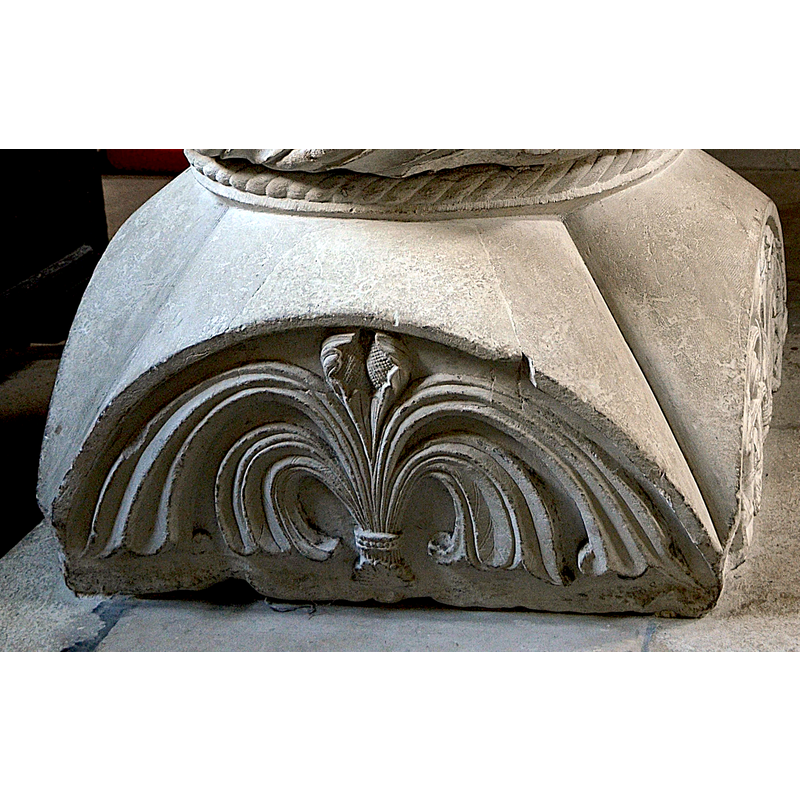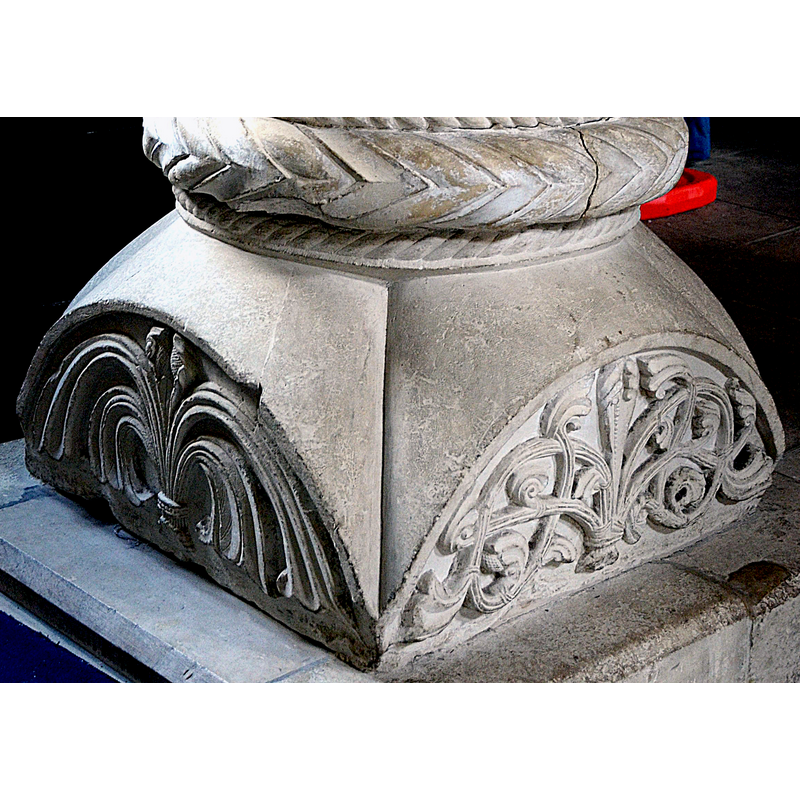Weston Turville / Westone
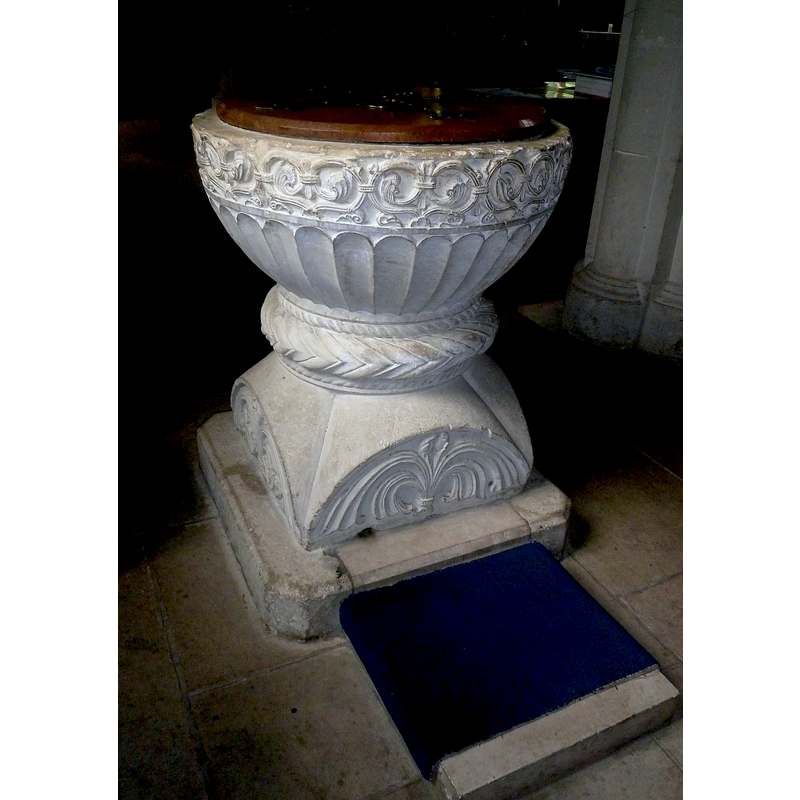
Image copyright © Rob Farrow, 2014
CC-BY-SA-2.0
Results: 15 records
view of font and cover
Copyright Statement: Image copyright © Rob Farrow, 2014
Image Source: digital photograph taken 13 July 2014 by Rob Farrow [www.geograph.org.uk/photo/4077626] [accessed 30 September 2015]
Copyright Instructions: CC-BY-SA-2.0
view of font and cover
Copyright Statement: Image copyright © Peter Austin, 2010
Image Source: digital photograph taken 9 August 2010 by Peter Austin [aka pete-astn] [http://www.flickr.com/photos/53366513@N00/sets/72157624630453200/]
Copyright Instructions: Standing permission
view of font
Copyright Statement: Image copyright © Ken Goodearl, 2007
Image Source: digital photograph taken by Ken Goodearl [www.petergoodearl.co.uk/ken/aylesburyfonts/aylesburyfont_pics.htm#aylesbury] [accessed 30 October 2007]
Copyright Instructions: Permission received
design element - motifs - vine - acanthus - detail
Copyright Statement: Image copyright © Rob Farrow, 2014
Image Source: digital photograph taken 13 July 2014 by Rob Farrow [www.geograph.org.uk/photo/4077663] [accessed 30 September 2015]
Copyright Instructions: CC-BY-SA-2.0
design element - motifs - beaded-tape
design element - patterns - ribbed - concave
design element - motifs - rope moulding - parallel - 2
design element - motifs - braid
design element - motifs - vine - acanthus
view of church exterior - south view
Scene Description: Source caption: "Weston Turville - St. Mary's - Southern façade. The southern façade of St. Mary's church in Weston Turville - note the unusual tracery to the tops of the C14th windows in the south aisle."
Copyright Statement: Image copyright © Rob Farrow, 2014
Image Source: digital photograph taken 31 May 2014 by Rob Farrow [www.geograph.org.uk/photo/4077560] [accessed 30 September 2015]
Copyright Instructions: CC-BY-SA-2.0
view of font and cover in context
design element - motifs - leaf - acanthus
Scene Description: a second one, slightly different from the previous: the flower has one head
Copyright Statement: Image copyright © Timothy Marlow, 2015
Image Source: edited detail of a digital photograph taken 30 April 2013 by Timothy Marlow
Copyright Instructions: Image and permission received (letter of 26 October 2013)
symbol - plant or tree - Tree of life?
design element - motifs - leaf - acanthus
INFORMATION
Font ID: 01354TUR
Object Type: Baptismal Font1
Font Century and Period/Style: 12th - 13th century, Late Norman / Transitional?
Workshop/Group/Artisan: Aylesbury group
Cognate Fonts: Aylesbury, Bledlow, Great Kimble, Little Missenden
Church / Chapel Name: Parish Church of St. Mary the Virgin
Font Location in Church: Inside the church, W end of the S aisle
Church Patron Saint(s): St. Mary the Virgin
Church Address: Church Walk, Weston Turville, Buckinghamshire, HP22 5SH
Site Location: Buckinghamshire, South East, England, United Kingdom
Directions to Site: Located on the B4544, 6 km SE of Aylesbury
Ecclesiastic Region: Diocese of Oxford
Historical Region: Hundred of Aylesbury
Font Notes:
Click to view
There is an entry for Weston [Turville] [variant spelling] in the Domesday survey [http://domesdaymap.co.uk/place/SP8511/weston-turville/] [accessed 23 February 2015], but it mentions neither cleric nor church in it. Batty (1848) notes this as a font of the same type as Aylesbury St. Mary's. Noted in Parker (1850) as a "curious, cup-shaped" Norman font, with reference to an engraving in Lipscomb (vol. ii, p. 501). Sheahan (1862) too refers to Lipscomb entry and notes the similarity of this font with the ones at Aylesbury and Kimble. Listed in Cox & Harvey (1907) as a Norman font. Described in Bond (1908) as a baptismal font similar to the ones at Aylesbury, Bledlow, Gt. Kimble, etc.; the base shaped like an inverted cushion capital. Described in the Victoria County History (Buckingham, vol. 2, 1908): "That there was a church here in the 12th century is to be assumed, and the present font and part of an octagonal shaft built into the south wall of the chancel are of that date [...] The font stands in the third bay of the south arcade, and is a good example of the local late 12th-century type, with a large cup-shaped bowl, fluted below, and having a band of foliate ornament above, with a base like an inverted scalloped capital. In this instance there is only a single scallop on each face, filled in with foliate ornament. Dated in Betjeman (1958) and Stockner (1997) to the 12th century. Noted in Pevsner (1960) as Norman. English Heritage [Listing NGR: SP8592610286] (1967) reports: "Font: Norman, of the Aylesbury group, chalice shaped with carved base and fluted bowl, leaf scroll carving round top." The upper side of the basin is decorated with a fine acanthus wine which is gathered into elegant scrolls by ties of beaded ribbon; the sides of the underbowl are covered in the fluted pattern typical of the Aylesbury group fonts; the three mouldings that make up the centre ring (a fat braided moulding sandwiched between two thinner rope mouldings] are very similar to those on the font at Little Missenden; the vertical sides of the scalloped base are decorated with large palmette-like acanthus leaves. The font is raised on a quadrangular plinth with chamfered angles. There is a flat round wooden cover on the basin.
Credit and Acknowledgements: We are grateful to Peter Austin [aka pete astn], to Ken Goodearl, of [www.petergoodearl.co.uk/ken/aylesburyfonts/aylesburyfont_pics.htm#aylesbury], and to Timothy Marlow for their photographs of this font
COORDINATES
UTM: 30U 654774 5739383
Latitude & Longitude (Decimal): 51.783878, -0.756139
Latitude & Longitude (DMS): 51° 47′ 1.96″ N, 0° 45′ 22.1″ W
MEDIUM AND MEASUREMENTS
Material: stone, type unknown
Font Shape: chalice-shaped, hemispheric, mounted
Basin Interior Shape: round
Basin Exterior Shape: round
LID INFORMATION
Material: wood, oak?
Apparatus: no
Notes: [cf. FontNotes]
REFERENCES
- Victoria County History [online], University of London, 1993-. URL: https://www.british-history.ac.uk.
- Batty, Robert Eaton, Some particulars connected with the history of baptismal fonts: being a paper read at the quarterly general meeting of the Architectural and Archaeological Society for the County of Buckingham, London: F. & J. Rivington, 1848, [unpaged]
- Betjeman, John, An American's Guide to English Parish Churches (including the Isle of Man), New York: McDowell, Obolensky, 1958, p. 107
- Bond, Francis, Fonts and Font Covers, London: Waterstone, 1985 c1908, p. 51, 151
- Cox, John Charles, English Church Furniture, New York: E.P. Dutton & Co., 1907, p. 187
- Parker, John Henry, The Ecclesiastical and architectural topography of England: Oxfordshire, Oxford, London: Published under the sanction of the Central Commitee of the Archaeological Institute of Great Britain and Ireland [by] John Henry Parker, 1850, [entry no.] 202, 216
- Pevsner, Nikolaus, Buckinghamshire, Harmondsworth: Penguin, 1960, p. 19, 282
- Sheahan, James Joseph, History and topography of Buckinghamshire, comprising a general survey of the county, preceded by an epitome of the early history of Great Britain, London; Pontefract: Longman, Green, Longman, and Roberts; William Edward Bonas [...], 1862, p. 217, 218
- Stocker, D.A., "Fons et origo: The Symbolic Death and Resurrection of English Font Stones", I (1997b), Church Archaeology, 1997, pp. 17-25; p. 20ff
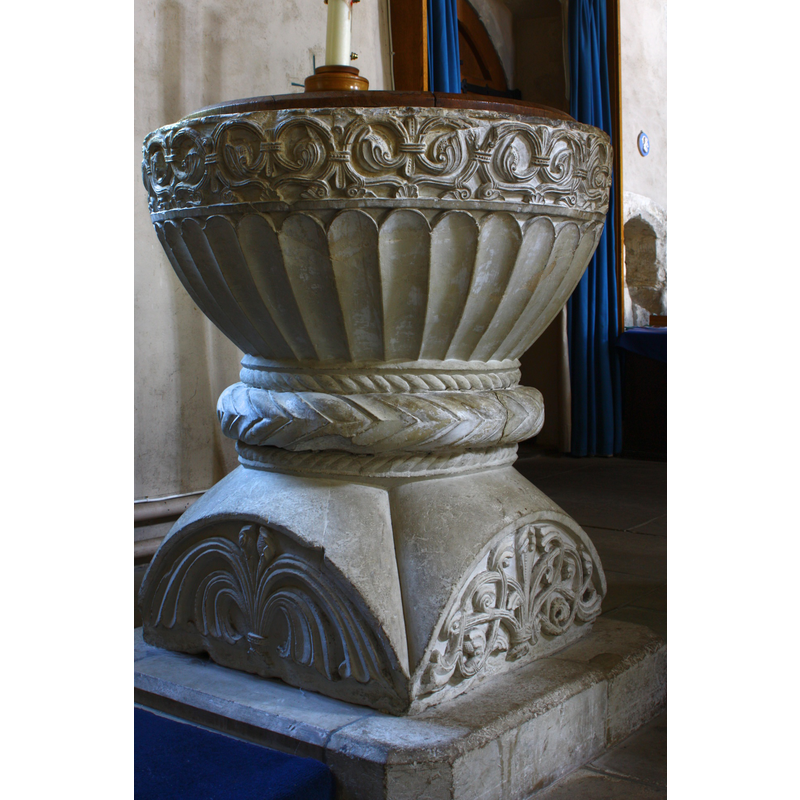
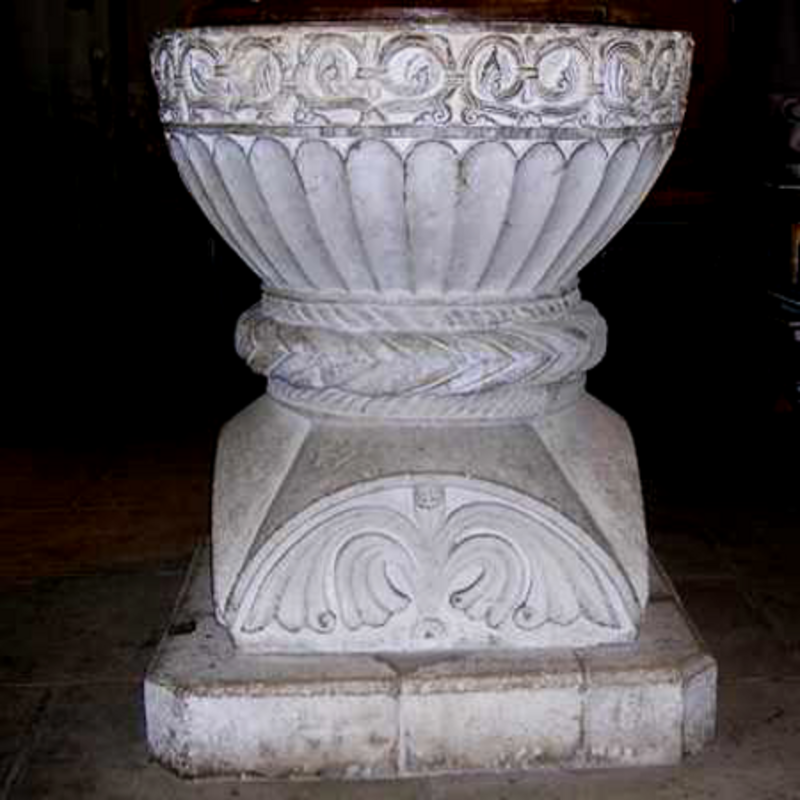
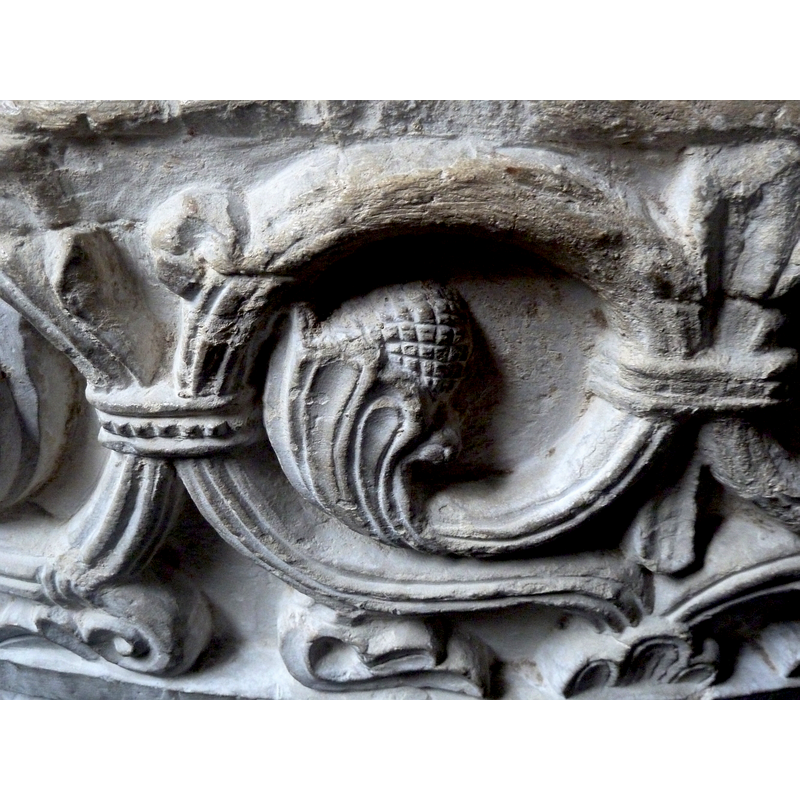
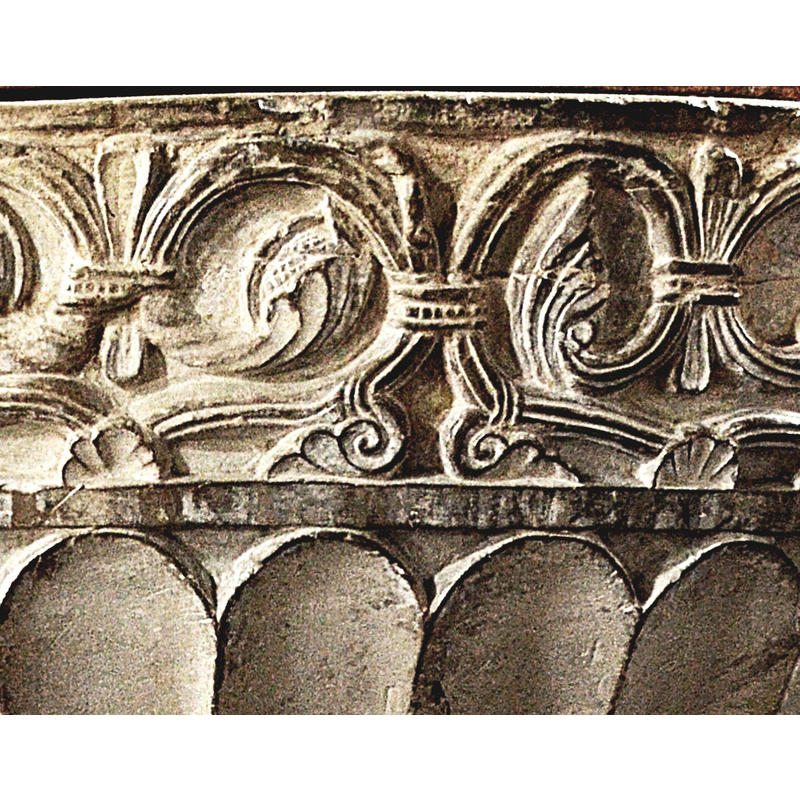
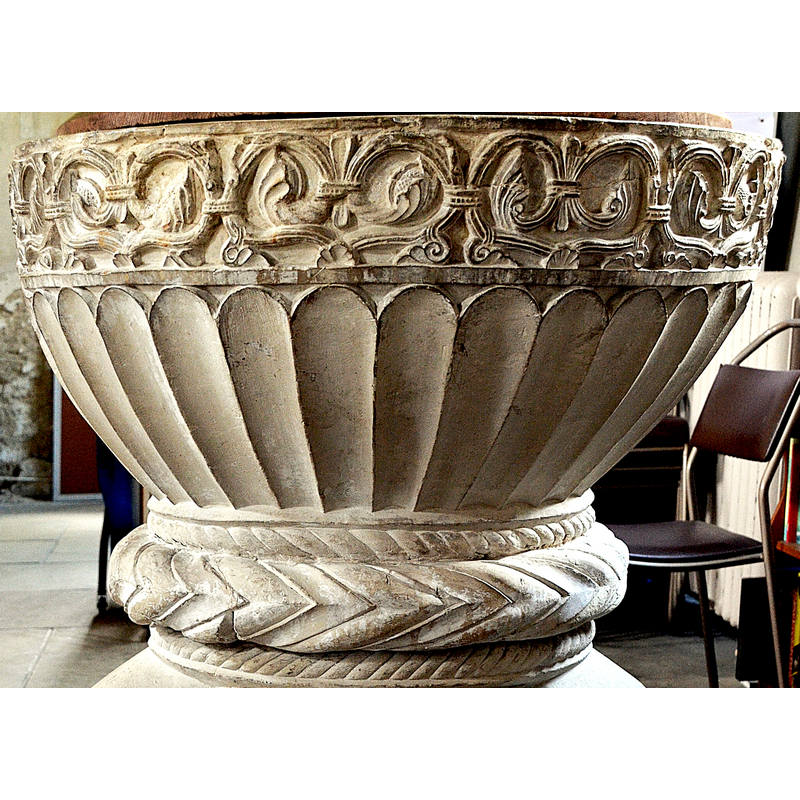
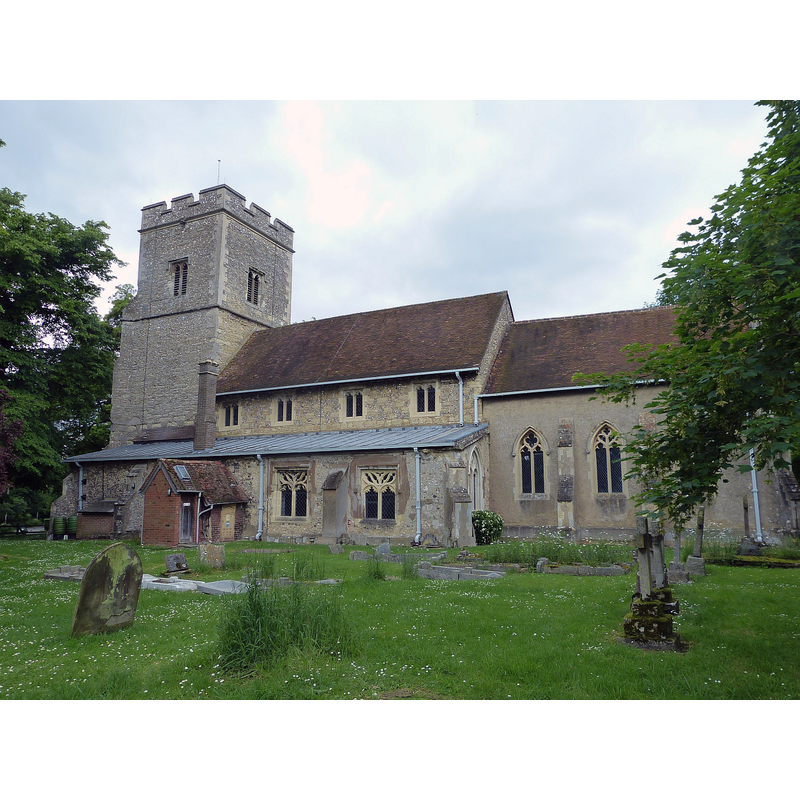
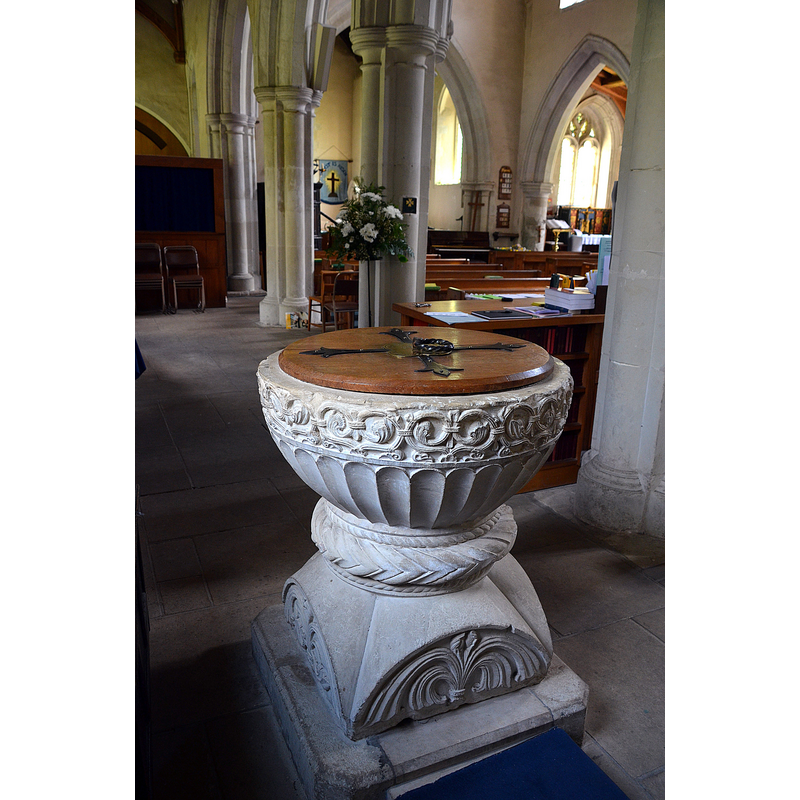
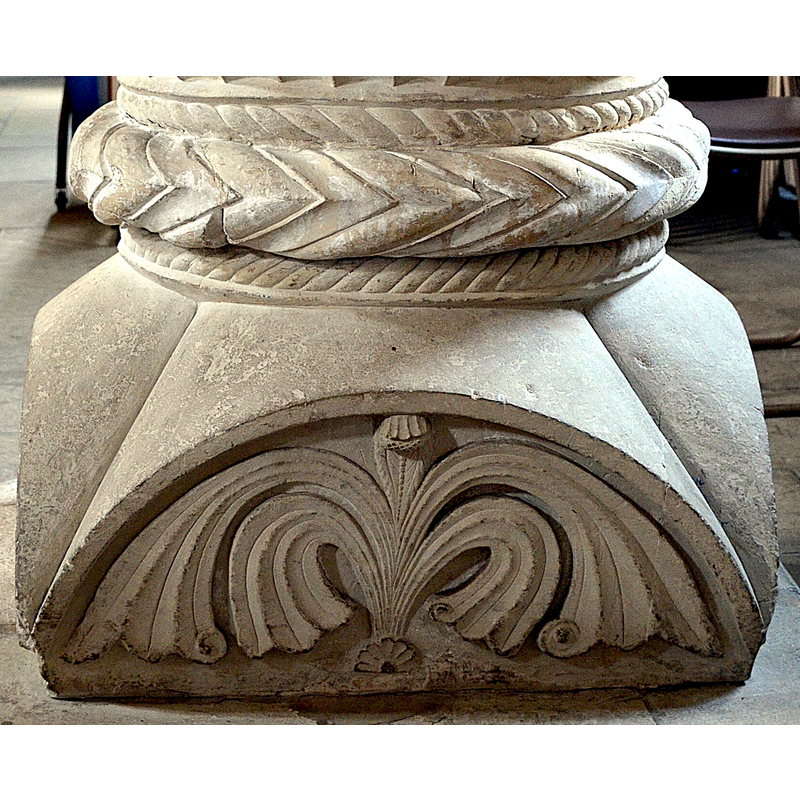
![[cf. Font notes]](/static-50478a99ec6f36a15d6234548c59f63da52304e5/compressed/1150223014_compressed.png)
